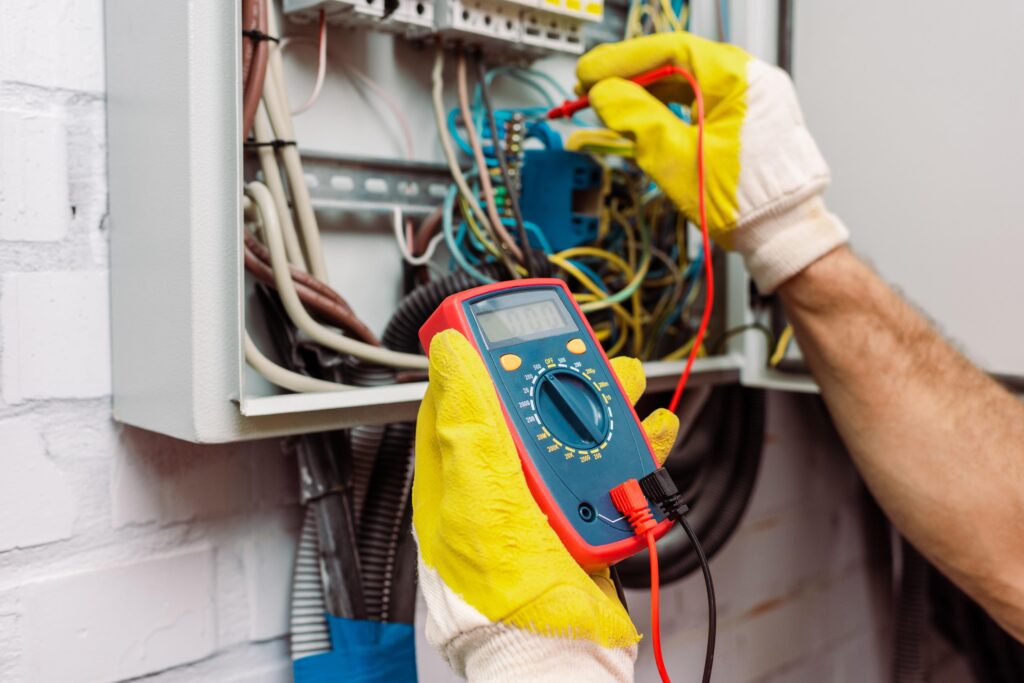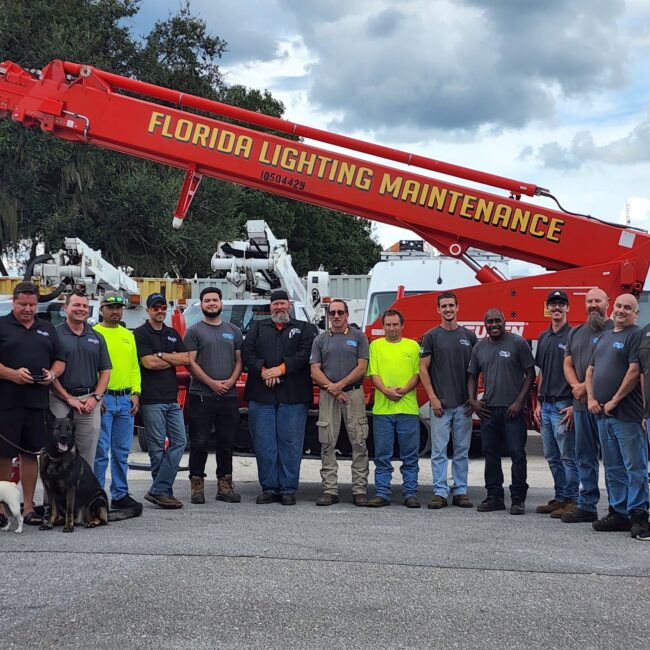Our Florida Electrical and Lighting Design and Maintenance for Retailers and Businesses focuses equally on Lighting Services that support our customers goals.
In Florida commercial facilities, lighting does more than illuminate — it ensures your business remains compliant, safe, and accessible. Both the Americans with Disabilities Act (ADA) and Occupational Safety and Health Administration (OSHA) have specific lighting standards that Florida businesses must follow to support safety and accessibility.
Failing to meet these requirements can result in fines, legal liability, and reputational damage. Understanding these standards — and proactively maintaining compliance — is crucial for business owners and property managers across the state.

Proper lighting affects more than aesthetics. It has a direct impact on:
Whether it’s a retail storefront in Tampa or a warehouse in Orlando, staying compliant helps your business avoid costly violations while creating a safer, more inclusive space.
The ADA mandates that all public spaces be accessible to individuals with disabilities. In terms of lighting, this includes:
Entrances, hallways, ramps, and pathways must be well-lit to assist those with visual impairments or mobility devices. Inconsistent or low lighting may lead to trip hazards or disorientation.
ADA-compliant signs — including those with braille or tactile characters — must be clearly illuminated and easy to locate. Poor lighting can render essential signage ineffective.
The transition between different lighting zones (e.g., from outdoor sunlight to interior corridors) should be gradual and consistent. Sudden changes in brightness can create safety risks, especially for individuals with low vision.

OSHA requires minimum lighting levels in workplaces to reduce hazards and protect workers. These standards apply across industries in Florida:
Depending on your environment, OSHA requires the following minimum illumination levels:
Maintaining these levels ensures visibility and minimizes accidents involving machinery, tools, or uneven flooring.
Exit routes must be illuminated at all times, even during a power failure. OSHA requires:
Burned-out bulbs, broken fixtures, or failing emergency lights are not just annoyances — they are violations. Regular inspection and maintenance help avoid infractions during OSHA or local fire marshal audits.
Businesses that fail to meet lighting standards may face:
Beyond financial consequences, non-compliance can hurt your public image and customer trust — especially in Florida’s competitive commercial environment.

At Florida Lighting Maintenance (FLM), we specialize in helping businesses meet and exceed ADA and OSHA lighting standards. Our Florida-based team understands both federal and local requirements and provides solutions tailored to your property.
Our services include:
